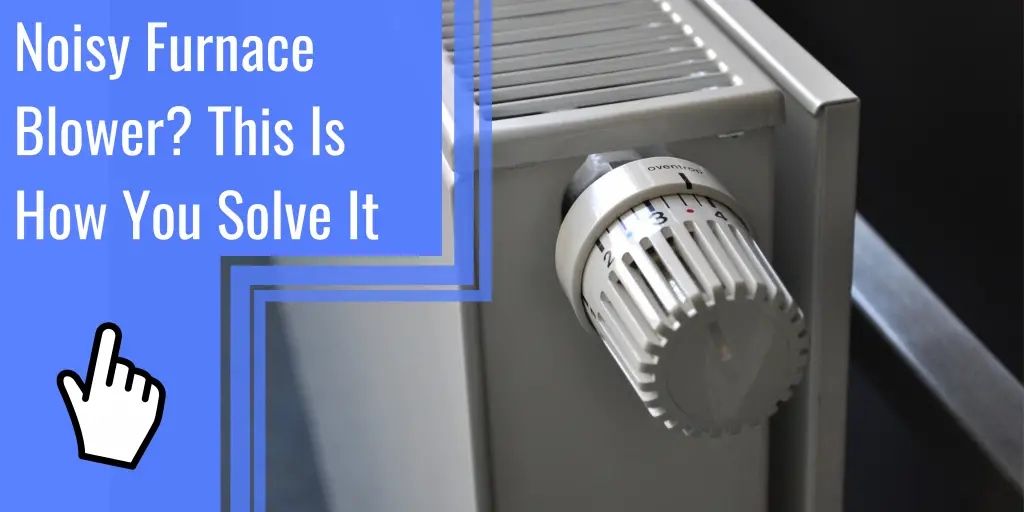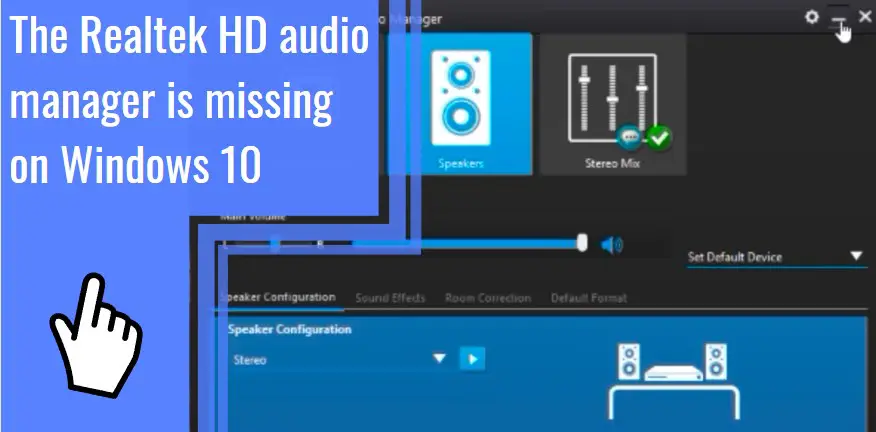What you find on this page:
Furnace blowers are one way for people to survive the winters and keep their homes warm and cozy. And while this equipment is generally noisy, sometimes it can get too loud.
The good news is, it’s possible to reduce the racket coming from your furnace blower. The important thing is to identify the cause and then find ways to fix it.
If you’re wondering, “Why is my furnace so loud?” Here are five common reasons your equipment is excessively loud and how to quiet a noisy furnace blower.
The Furnace Makes Loud Noise When Turning On
A loud furnace can be terrifying. Especially if it was working just fine and then suddenly started to kick off with a loud bang.
The main causes of this include:
- Delayed ignition: Delayed ignition occurs when gas is not instantly sparked to light, causing it to accumulate and build up. Then when you turn on your furnace, the accumulated gas all gets ignited at once, producing a mini explosion-like sound. It can also harm your heat exchanger.
- Expanding air ducts: Expanding air ducts occur due to too much static pressure (pressure confined in a space) pushing on your furnace’s ductwork. The result? It expands with a loud bang.
The primary cause of delayed ignition is dirty burners or an imbalance in the air-to-fuel ratio. In the latter case, flames from too much gas or too much primary air get lifted away from the burner outlet.
Static pressure is caused by undersized ducts, closed supply vents, and dirty air filters.
To determine if the reason your furnace is too loud is delayed ignition or expanding air ducts, stand near it as it’s about to turn on. If there’s a clicking noise when it’s turning on and then a loud bang from the furnace, it’s a delayed ignition.
On the other hand, if the noise originates away from your furnace when the blower turns on, then it’s expanding air ducts.
Clean the Burners
Debris and dust particles build up around furnace burners, disrupting the combustion process.
By cleaning the inside of the burner chamber and the burners, you prevent delayed ignition. Additionally, it helps lower heating bills.
Air Filter Change
Air filters block dirt and debris from entering the ductwork.
Cleaning the air filters or, if necessary, changing them ensures smooth airflow and prevents static pressure.
The Furnace Blower Motor Makes Noise
The blower motor’s sole function is to distribute warm air into your home through the vents. Furnace blower motor noise could be a result of the furnace blower motor or home AC blower motor making noise.
If you’re facing the problem of a new blower motor making noise, it can be due to the following:
- Bad bearings: There’s a chance the bearings or any of the parts surrounding the blower motor are worn out or loose. Bearings tend to wear out since they are constantly in motion.
- Fan motor wear and tear: Normal wear and tear or clogging can cause the fan motor to exert more power to rotate. As a result, the furnace is loud when running. Left unattended, it can result in damage.
- Belt issue: Over time, a belt may get worn out. This is usually the cause of that squeaking noise you hear coming from your blower motor.
Fasten the Motor With Bolts
Fastening the motor with bolts and installing rubber mounts can help alleviate the issue of a furnace blower that is too loud. It reduces the vibration and the chances of parts getting loose.
Thus, it’s a straightforward way to ensure furnace blower noise reduction.
Lubricate the Bearings
Lubricating the bearings drastically reduces the chances of them wearing. By extension, it eliminates the problem of the blower motor making noise.
Replace Loose Parts
The wear and tear of the fan motor can cause the fins to loosen. The result is an annoying rattling noise when the blower runs.
Replacing the loose parts enables a blower motor to run smoothly. Replacing a loose belt also gets rid of the squeaking noises the blower motor makes.
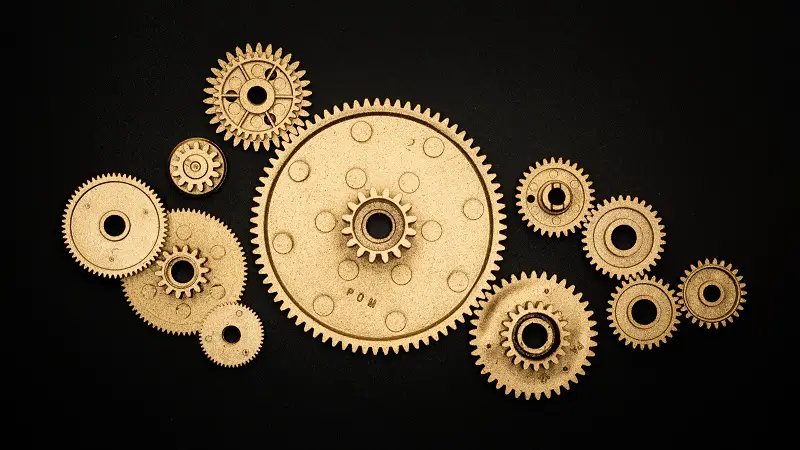
The Return Air Vent Making Noise
When there’s noise in the return air vent, you will hear the sound coming from the outlets, not the source. Still, you may wonder, “Why is my forced air furnace so loud?” The reason is sound travels well through metal pipes.
Depending on the type of noise you hear, here are the common causes.
- Closed or blocked vents: When one or more of the heating vents is closed or blocked. Closed vents cause extra air pressure and unexpected noises. Now, you may have intentionally closed a vent in a room you don’t use or accidentally blocked it with a piece of furniture while cleaning.
- Loose ducts: Rattling or clunking from the return air vent can be due to disjointed ducts. In addition, even though furnace blowers have air filters, debris, small toys, papers, and other small items can still find their way into the vents.
Vent Covers
Ensure the vent covers are all open to allow smooth airflow and prevent the buildup of static pressure.
If that doesn’t work, and you’re wondering how to quiet a noisy air return, try straightening the fins on the vent to increase airflow. Doing so reduces air turbulence, reducing flutter and the ringing noise you hear on the vent.
Vents also have to be tightly secured on the wall. This prevents air from being pulled through the confined spaces on the edges, producing a whistling sound. Secure the vents with a duct liner.
Vent Cleaning
Clean the vent to remove debris and dirt that might have passed through the air filter. Also, beware that a dirty vent may signify that you need to replace the air filter.
Due to limited space, mobile homes don’t have proper return airway vents, hence their noisy furnaces. But this is how to quiet a furnace blower in a mobile home—installing better filters to ensure no clogging on the motors.
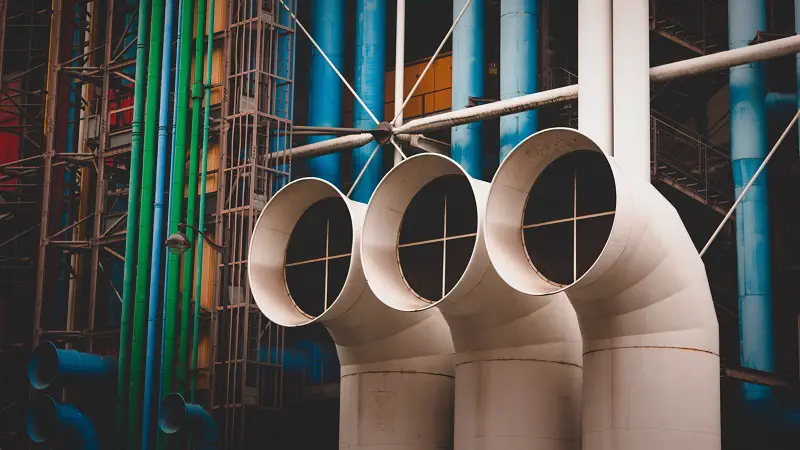
The Furnace Is Making a Rattling Noise
“My furnace is making a rattling noise,” is a pretty common complaint. If your furnace is making a rattling noise, the problem could be a loose screw, stiff belt, or cracked heat exchanger. But the severity of the problem is determined by whether you hear the rattling noise when you turn on your furnace or when it’s running.
If the rattling noise occurs as the furnace turns on or just a few seconds after, it implies the problem is severe. It means you have a cracked heat exchanger. Because the heat exchanger is made of metal, it expands and produces a rattling noise when heated.
On the other hand, if the rattling noise occurs while the furnace is running, then it’s a simple problem like loose screws, loose panel, loose connection in the duct, or a misaligned blower.
Replace Stiff Belts
Stiff or defective belts contribute to the rattling noise you hear in a furnace. Replacing these is the answer to how to quiet a noisy furnace blower.
Additionally, while the furnace is running, try to locate the source of the rattling. Apart from replacing stiff belts, you may need to tighten loose screws using a screwdriver. In addition, use duct tape to secure loose connections on the duct.
Replace the Heat Exchanger
Replacing the heat exchanger is vital because a cracked heat exchanger is dangerous in addition to the noise it causes. It can emit carbon monoxide, causing other health problems.
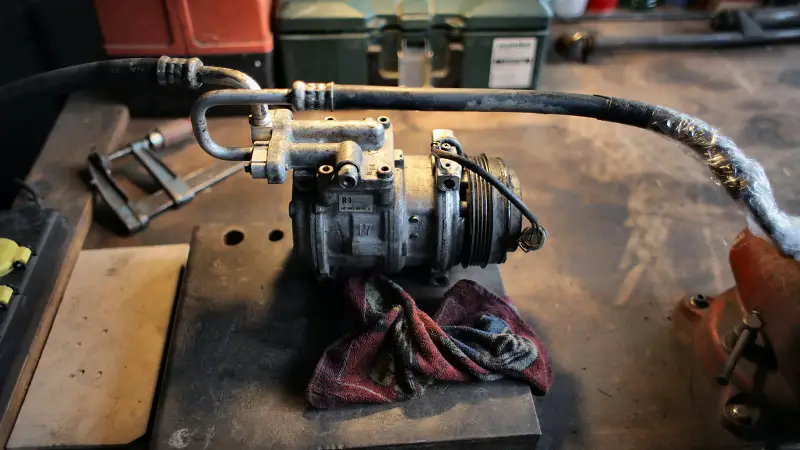
The Furnace Exhaust Fan Is Noisy
The furnace exhaust fan (inducer fan) lets out the exhaust fumes formed during the combustion process to the outside of your house.
A furnace fan making noise can be due to any of the following:
- Damaged motor bearings: Inducer fan motors have bearings that can wear out and cause a very loud noise. The noise gets heightened if the bearings are unsealed.
- Debris in the motor: Debris can find its way into the motor, making clunking noises when the fan runs. Additionally, some small animals can nest near the motor, contributing to the debris.
- Bad installation: An incorrectly installed motor or furnace can be a source of constant loud noise. The motor housing usually has a drain that removes water. If installed at the wrong angle, it becomes a source of sloshing sounds.
- Loose components: Some components loosen due to the constant vibration when the fan is at work. The wheel inside the motor can rub against the housing. Also, the wheel fins can come off and bang against other parts.
Oiling Motor Bearings
Unsealed motor bearings require oiling every six months to slow down wear and tear and ensure the inducer fan runs well. In addition, sealed bearings require changing if they are damaged to put a stop to the problem of a noisy furnace exhaust fan.
Cleaning the Inducer Motor
You can inspect the inducer motor for any clogging and clean it out completely. You might also need to check the vent line and also clean it if there is any debris.
Tightening Loose Components
Like with the furnace, tightening loose parts and replacing worn or rusty components of the exhaust fan will help with furnace noise reduction.
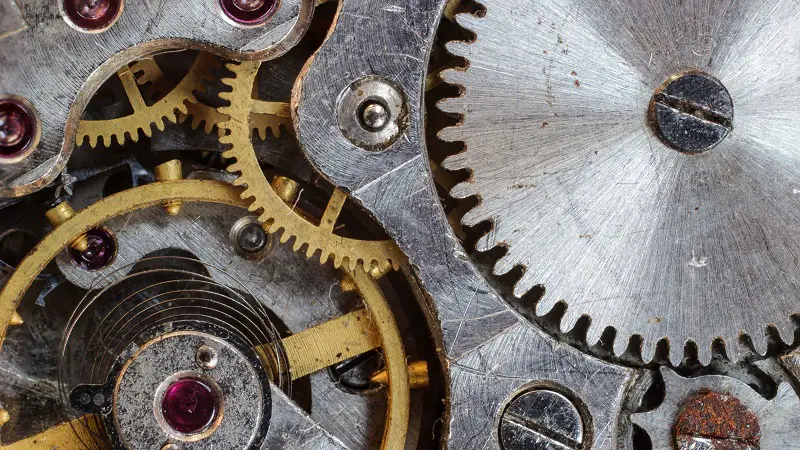
Conclusion
There are different causes for various types of malfunctions that result in furnace blower noises. What’s important is that you identify the source of the noise and what’s causing it to help find an appropriate solution. Fortunately, you now know how to quiet a noisy furnace blower and why the sound gets too loud. Some of the issues are easily fixed, and some require a more professional approach, depending on the extent of the problem.

